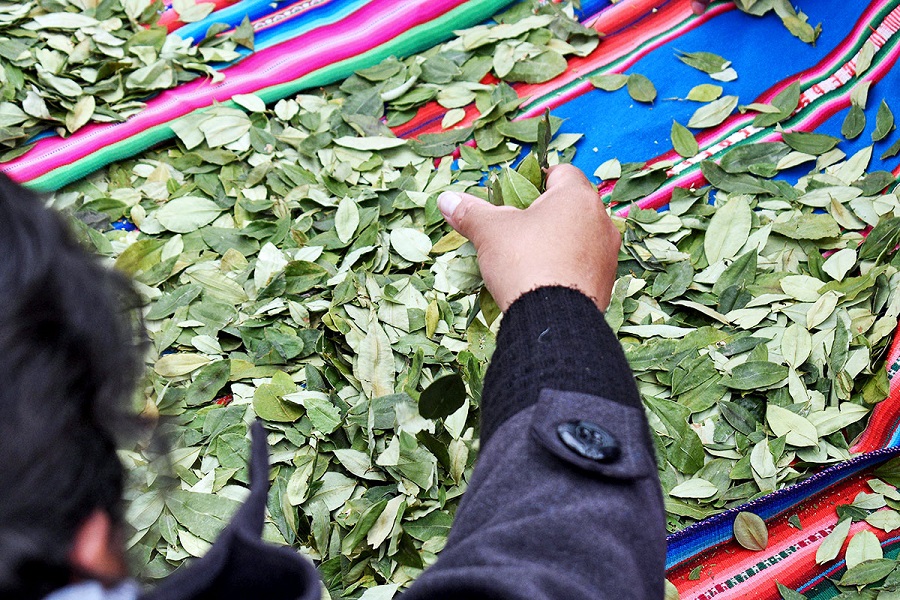RIO DE JANEIRO, BRAZIL – At an event held at the Government House in La Paz, the president stressed that his administration is working to industrialize the plant through initiatives such as an industry “that produces a coca-based toothpaste.”
“One wonders how in ancient times there were no dentists and our ancestors had no dental issues. What happened then? There is a key alkaloid in the coca leaf that neutralizes cavities and that is why we are going to implement this plant, this toothpaste production industry,” he said.

Arce acknowledged that the government will not be a pioneer in this industry, since a few years ago there was “a private enterprise focused on this,” but it ran out of raw material due to the “coca crop reduction policies” of previous governments.
The Bolivian president noted that the plant will be a first initiative “and that others will follow,” as the coca leaf contains some 13 alkaloids “that are used in medicine, nutrition, in people’s health care” and can be industrialized.
He also lamented attempts to “discredit the coca leaf” and urged to “revalue, appreciate, respect and protect the ancestral symbol” with “firm actions to counter this defamation” of the plant.
NATIONAL DAY
Bolivia celebrates National Acullico Day on January 11 every year to mark the fact that in 2013 the country rejoined the 1961 United Nations Single Convention on Narcotic Drugs, with a caveat to allow chewing within its territory.
In addition, a 2016 law declared the “acullico” Intangible Cultural Heritage of Bolivia for being a “traditional expression” that allows “extracting the nutrient content of the coca leaf.”
According to Arce, a massive event was planned to celebrate the date, but restrictions due to the fourth wave of the Covid-19 pandemic imposed a “small, but significant” event.
“Today we pay tribute to our coca leaf that over the years has become a symbol of integration, reciprocity and culture,” he stressed.
The event was also attended by Minister of Rural Development and Lands Remy Gonzales and representatives of the peasants of Los Yungas de La Paz, one of the plant’s producing areas in Bolivia.
THE LEAF
Bolivia’s coca leaf is enshrined in the Constitution for its traditional, medicinal and cultural uses, but part of the production is diverted to drug trafficking for the manufacture of cocaine.
In 2017, the then-government of Evo Morales enacted a law that expanded the plant’s legal cultivation area from 12,000 to 22,000 hectares.
Morales remains the top leader of the coca growers’ federations in the central area of the Cochabamba Tropics, a position he held during his nearly 14 years in power.
The cultivation of the plant in Bolivia increased by 15% from 25,500 hectares in 2019 to 29,400 hectares in 2020, according to a report released last August by the United Nations Office on Drugs and Crime (UNODC).

